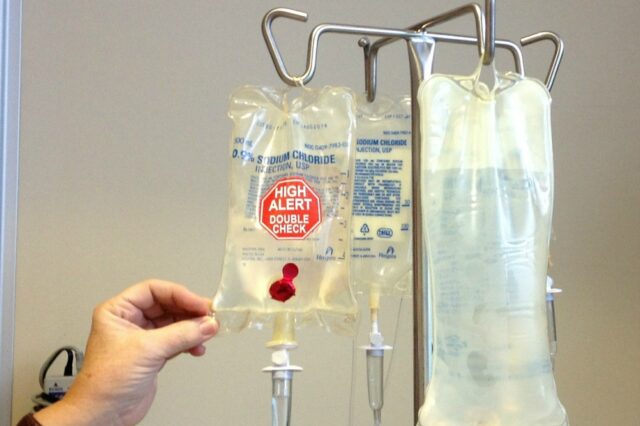Clinical Trials … Myth-Busted!

A new study has found that only 35 percent of Americans indicate that they are “likely” to enroll in a clinical trial — while other studies report that only 4 percent of cancer patients enroll in clinical trials nationally each year.
These stats are unfortunate, as clinical trials are often at the heart of medical advancements. They give enrolled patients the opportunity to be the first to benefit from new treatments, and they advance knowledge and discovery for future patients, Yet a lack of understanding about the benefits, risks and opportunities that trials offer can sometimes prevent patients from taking advantage of the newest drugs and treatments made available.
Leslie Pettiford, R.N., M.S., the supervisor of hematological malignancies for the UF Health Cancer Center’s Clinical Trials Office, helps bust some of the most prevalent — and damaging — myths about clinical trials:
MYTH: Clinical trial participants are just human guinea pigs
FACT: Clinical trial patients are partners with their research teams in the process of discovery. They receive some of the best therapies and treatments currently available and get ongoing updates throughout the process. According the American Cancer Society, patients overwhelmingly rate their clinical trial experiences as positive, saying they were treated with dignity and respect.
MYTH: Clinical trials are dangerous
FACT: There are federal rules in place to make sure that the rights and welfare of study participants are protected and that clinical trials are conducted safely and ethically. All treatments must first undergo pre-clinical testing in laboratories. Once treatments are identified as being potentially effective and as not having intolerable side effects, they move into human clinical trials. In addition, potential participants must go through the informed consent process in which the study team fully describes the study, including any possible risks and benefits of participation. Patients are closely monitored by physicians and the research team throughout the study and can choose not to participate at any time.
MYTH: Clinical trial participants receive sugar pills
FACT: The use of placebos is rare in cancer clinical trials, and placebos are never used in place of standard treatment. Study participants will receive either the best standard treatment for their condition or the new treatment. Sometimes clinical trials compare standard treatment plus the study treatment to standard treatment plus a placebo. Using a placebo in this way can help remove bias from the clinical trial. Study participants will always be informed if the study uses a placebo as part of the study treatment.
MYTH: Clinical trials are only for people whose other treatment has failed
FACT: Cancer clinical trials differ according to their purpose. They exist for all types and all stages of cancer treatment, as well as for cancer prevention and diagnosis. There are also trials that focus on quality of life factors, managing symptoms of cancer and side effects of treatment, as well as diagnostic tests or procedures.
MYTH: Health insurance will not cover the costs of a cancer clinical trial
FACT: The Patient Protection and Affordable Care Act requires that most health insurance plans cover the routine patient care costs that are associated with approved clinical trials. Phase 1, 2, 3 and 4 trials meet the definition of an approved clinical trial if it is conducted for the prevention, detection or treatment of cancer and it is federally funded or conducted under FDA regulations. “Routine patient care costs” means the costs of health care services, including drugs, items, devices and services that would be covered under the patient’s health plan if they were provided outside of a cancer clinical trial. Health care plans are not required to cover “research costs” such as the investigational drug or treatment, any procedure done only to collect data for the study, and anything that is not related to the routine treatment for the condition or disease being studied.
About the author
